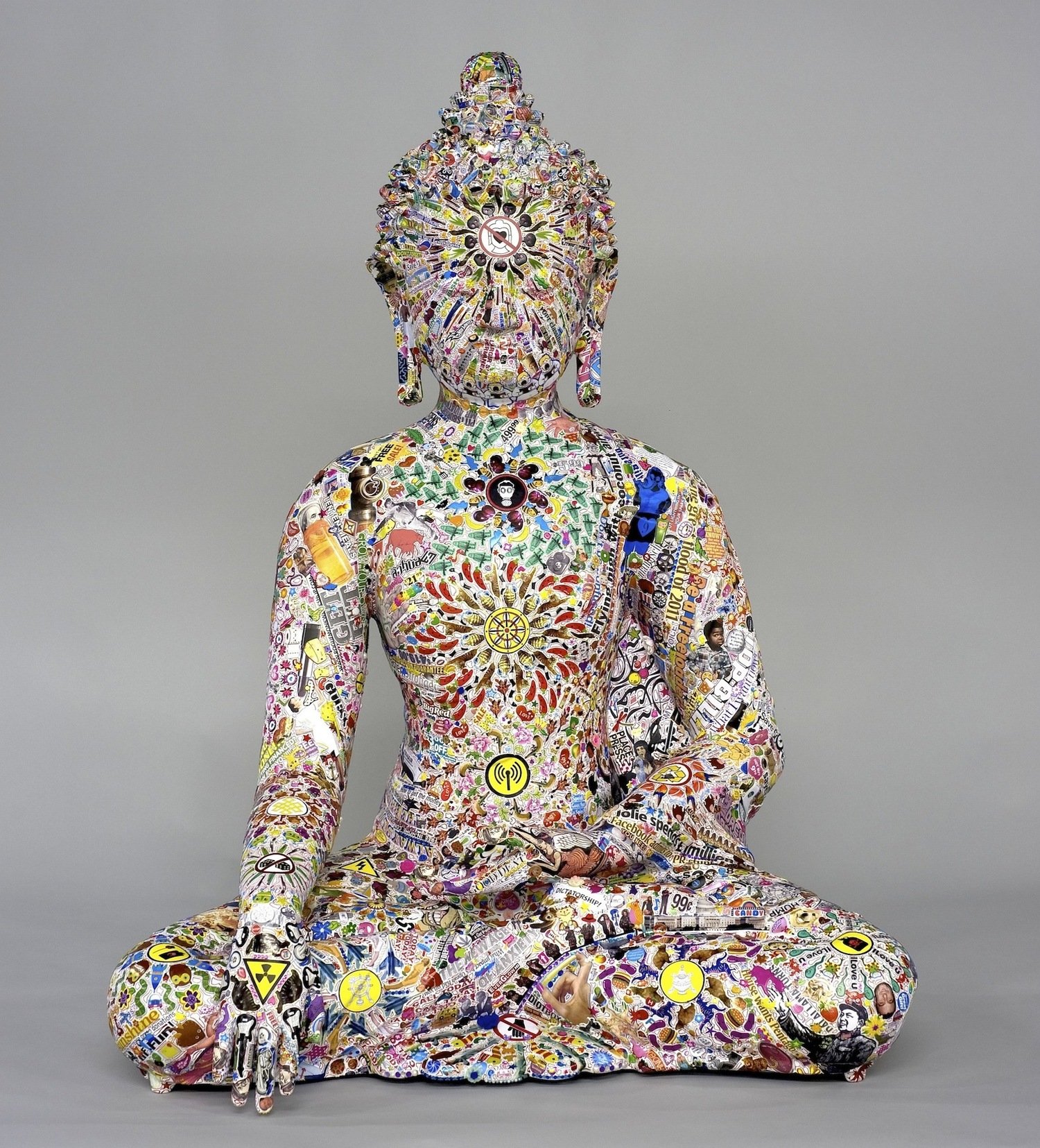ultimate truth/No-self
Gonkar Gyatso. No Love Buddha, 2011
The assignment this week in class was to write about the buddhist doctrine of no-self, as described in early buddhist thought. If you want to explore this corner of Buddhism more I highly recommend this book, an insightful reading of early Buddhist philosophy
༶
The prevailing belief during the time of the Buddha was that there exists in every person an Ātman, a word we can translate as the soul, the self, the witness, or the experiencer. This Ātman moves through incarnations, in different bodies with different names, propelled by the actions it takes and the karmic repercussions of them. What was radical about the philosophy revealed by the Buddha was the negation of the existence of this Ātman. Part of his response to how reincarnation can occur without a ‘soul’ is the doctrine of dependent origination. In this view, all phenomena are just a chain of cause and effect; nothing exists independently, everything that exists came into existence as a result of causes, and it will cause other things to happen. All matter and form [rupa] is made of other matter and form and will become still other types of rupa. We are made out of stardust, and to stardust we will return. The 'self' you experience is just a link in an eternal chain of cause and effect, a moment in spacetime, and can only 'exist' due to the existence of the whole rest of the chain.
In his dialogue with King Milinda, the sage Nagasena explains how we can have this seeming experience of existence while denying the existence of a self. There are two main ways he goes about explaining this, through the doctrine of the skandhas, and the concepts of conventional vs ultimate truth. We take the exhaustiveness claim as our base, that every part of a person is represented in physical form and the other 4 skandhas (feeling, perception, volition, and consciousness). He goes category by category showing that while we have experiences through these 5 skandhas, the self is not contained in any single one of them, nor is the aggregation of them together truly a ‘self’. These skandhas are merely the doors of perception through which existence is experienced.
If that is indeed the case, then how is it that we experience such a strong sense of selfhood? Because the ultimate truth, the lack of existence of a self, is a different thing than conventional truth, how we go about labeling and experiencing things as humans. The Buddha would give discourses from both levels of truth, based upon context and the level of realization of his audience. On a conventional level, we experience incarnation as the inhabitation of form and the experience of consciousness, constructed as the ego based “I”, and there is good reason for this! So that we can learn and grow and interact with each other. But on the ultimate level, there is no identifiable entity that is a ‘self’. There is merely a series of causes and effects cascading like a line of dominoes, until the chain is broken when the cessation of craving and attachment is attained.
The experience of consciousness that is me, Maya, writing this paper, exists in a conventional sense. I can tell stories about my past, have dreams about my future, and experience the keyboard under my fingers as I type. None of this is being denied in the doctrine of no-self except for ultimate identification with the concept of ‘I’. On a conventional level, I exist as an independent entity, subject to the laws of karma and rebirth. On an ultimate level I am the formless vast expanse, that which is neither born nor unborn, that which neither exists nor does not exist.
༶
Gonkar Gyatso. Sustainable Happiness, 2012


